ANOC NEWS: ANOC Awards 2021 Honors Best Athletes of Tokyo 2020
Monday, October 25, 2021 - 12:10 By United World Wrestling Press

CRETE, Greece (October 25) --- Wrestling's Mijain LOPEZ (CUB) was honored on Sunday night at the ANOC Awards 2021. The Cuban Giant earned the Outstanding Athlete Performance award for becoming the first-ever male wrestler to win four Olympic titles. ANOC News provided a breakdown of Sunday night's award winners.
A breathtaking ANOC Awards 2021 ceremony took place at the Creta Maris Beach Resort tonight, with the world coming together in celebration of some of the leading names in Olympic sport.
The athletes who shone at the Olympic Games Tokyo 2020 earlier this year were recognised for their inspiring performances. The best female and male athletes, as well as the best female and male teams from team sports were honoured, whilst an outstanding athlete performance was announced. Additionally, female and male award categories were introduced for the best multiple athlete event, which recognises outstanding collective performances by more than one athlete in sports that can also be practiced individually. Finally, there were awards for the outstanding National Olympic Committee (NOC) of Tokyo 2020 and for individual contribution to the Olympic Movement.
The ANOC Awards winners for 2021 are:
- Best Female Multiple Athlete Event of Tokyo 2020: Estonia Fencing Épée Team
- Best Male Multiple Athlete Event of Tokyo 2020: Italy Cycling-Track Team Pursuit
- Best Female Team of Tokyo 2020: New Zealand Rugby Sevens
- Best Male Team of Tokyo 2020: Japan Baseball
- Best Female Athlete of Tokyo 2020: Maggie Mac Neil
- Best Male Athlete of Tokyo 2020: Eliud Kipchoge
- Outstanding Athlete Performance: Mijaín López
- Outstanding NOC of Tokyo 2020: Japanese Olympic Committee
- Contribution to the Olympic Movement: John Coates
The ANOC Awards was created to show appreciation to NOCs and their athletes for their dedication to the Olympic Movement and for promoting the Olympic values all year round. During the ceremony, Diplomas were presented to the breakthrough NOCs that had historic sporting moments at Tokyo 2020.
The ANOC Diploma for Breakthrough NOCs recipients are:
- Bermuda Olympic Association – Triathlete Flora Duffy became Olympic champion, in doing so making Bermuda the smallest country by population to win a gold medal.
- Philippine Olympic Committee – Weightlifter Hidilyn Diaz made history by winning the women’s 55 kg category to become the first Olympic gold medallist from the Philippines.
- Qatar Olympic Committee – Fares Elbakh won his country’s first ever Olympic gold at Tokyo 2020 and shortly after, high jump star Mutaz Essa Barshim claimed Qatar’s second gold in what was one of the most memorable moments of Tokyo 2020, as he shared the gold medal with Italy’s Gianmarco Tamberi.
- Burkina Faso National Olympic Committee – Hugues Fabrice Zango became the country’s first Olympic bronze medallist as he claimed third spot in the men’s triple jump.
- San Marino National Olympic Committee – It was a Games to remember for San Marino. At the start of play, they had never reached an Olympic podium, but by the end of the Games they had won one silver and one bronze.
- National Olympic Committee of Turkmenistan – Tokyo 2020 saw Turkmenistan win its first Olympic medal, when Polina Guryeva won silver in the women’s weightlifting 59 kg category.
In addition to the ANOC Awards, the Hellenic Olympic Committee dedicated an award to the Best Greek Athlete of Tokyo 2020. Greek Deputy Sports Minister Lefteris Avgenakis presented Tokyo 2020 long jump champion Miltiadis Tentoglou with the award, following his stunning gold medal winning performance at the Games.
Representatives from 155 of the 205 NOCs were joined in-person by other stakeholders throughout the Olympic Movement for a spectacular seventh edition of the ANOC Award, with many others tuning in online. Athletes, NOCs and International Federations were all actively engaged in the ANOC Awards across all social media platforms throughout the evening, as the global celebration demonstrated how shared sporting values continue to unite different countries and cultures.
The awards ceremony was shown live by Greek broadcaster ERT. The event was also streamed live on the ANOC YouTube Channel, ensuring the whole sporting world was able to enjoy captivating mix of sport and culture.
Click the link to read more on the ANOC Olympic site...ANOC Awards 2021 Honors Best Athletes of Tokyo 2020

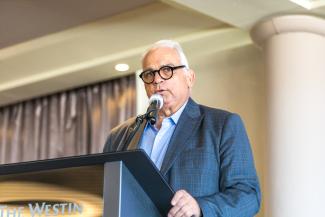
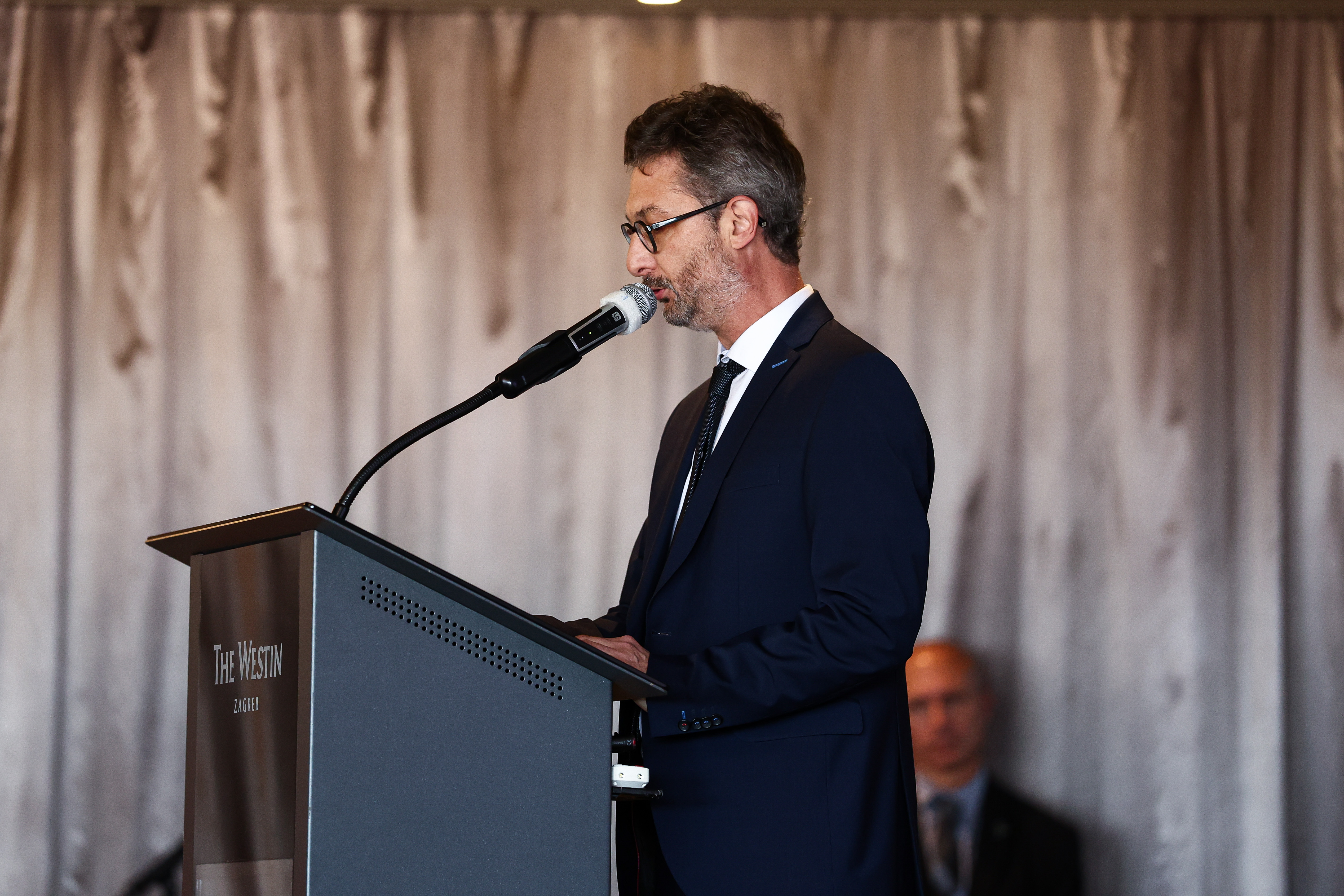 UWW Secretary General Carlos ROY welcomes the delegates to the World Conference. (Photo: United World Wrestling / Jake Kirkman)
UWW Secretary General Carlos ROY welcomes the delegates to the World Conference. (Photo: United World Wrestling / Jake Kirkman)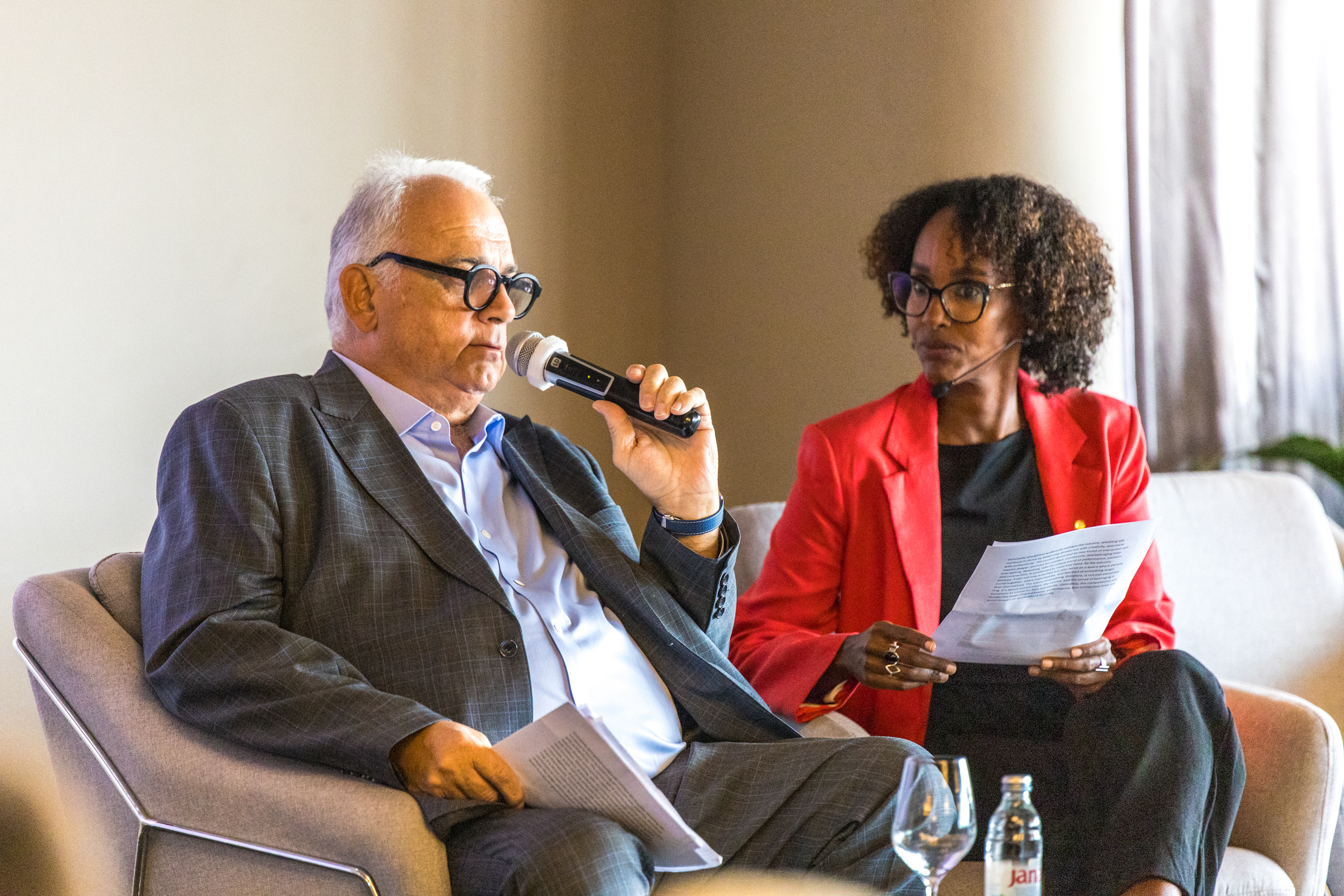 Nenad LALOVIC in a Q/A session with UWW Development Director Deqa NIAMKEY.
Nenad LALOVIC in a Q/A session with UWW Development Director Deqa NIAMKEY.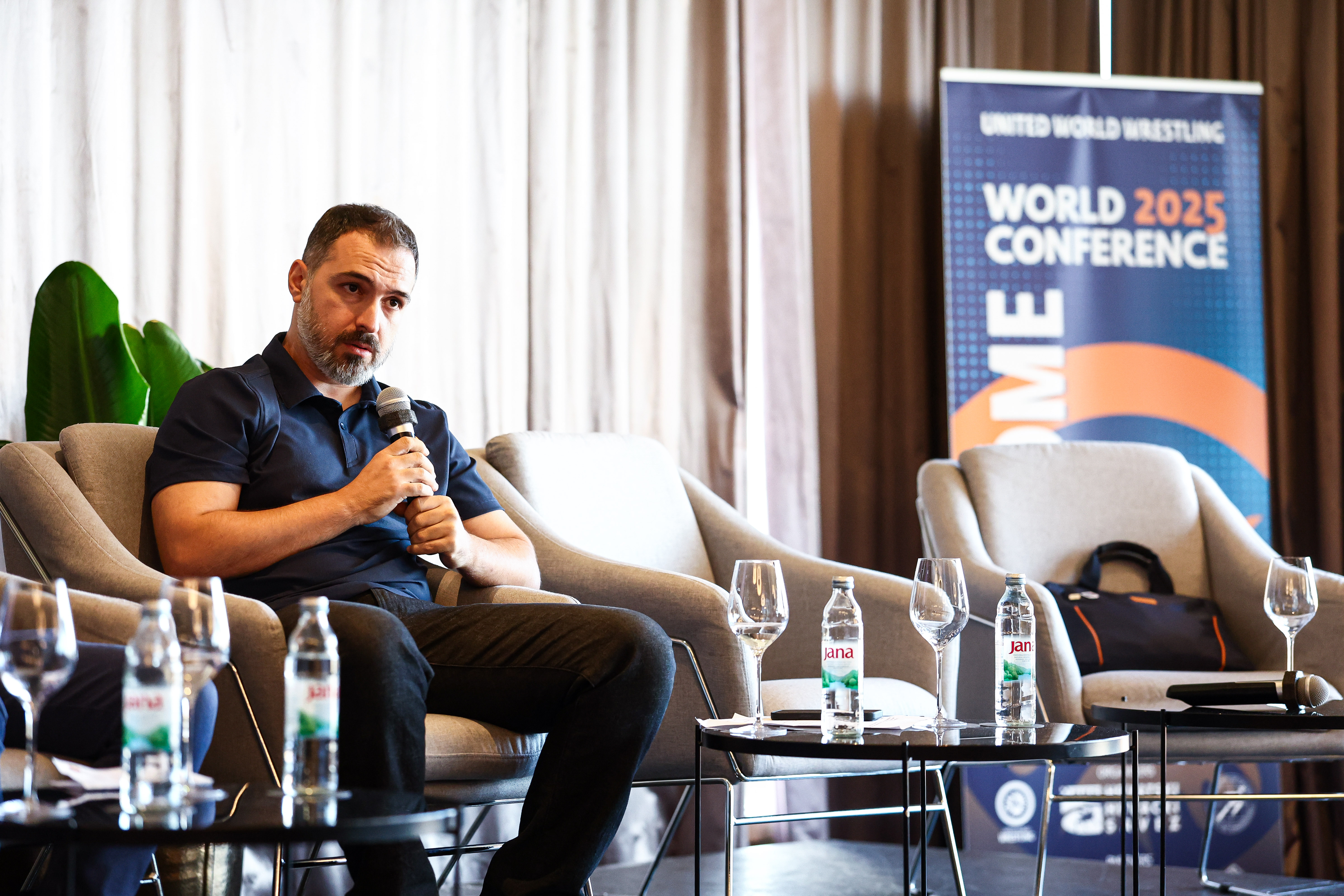 UWW Associated Styles Manager of UWW Onur SIMSEK.
UWW Associated Styles Manager of UWW Onur SIMSEK.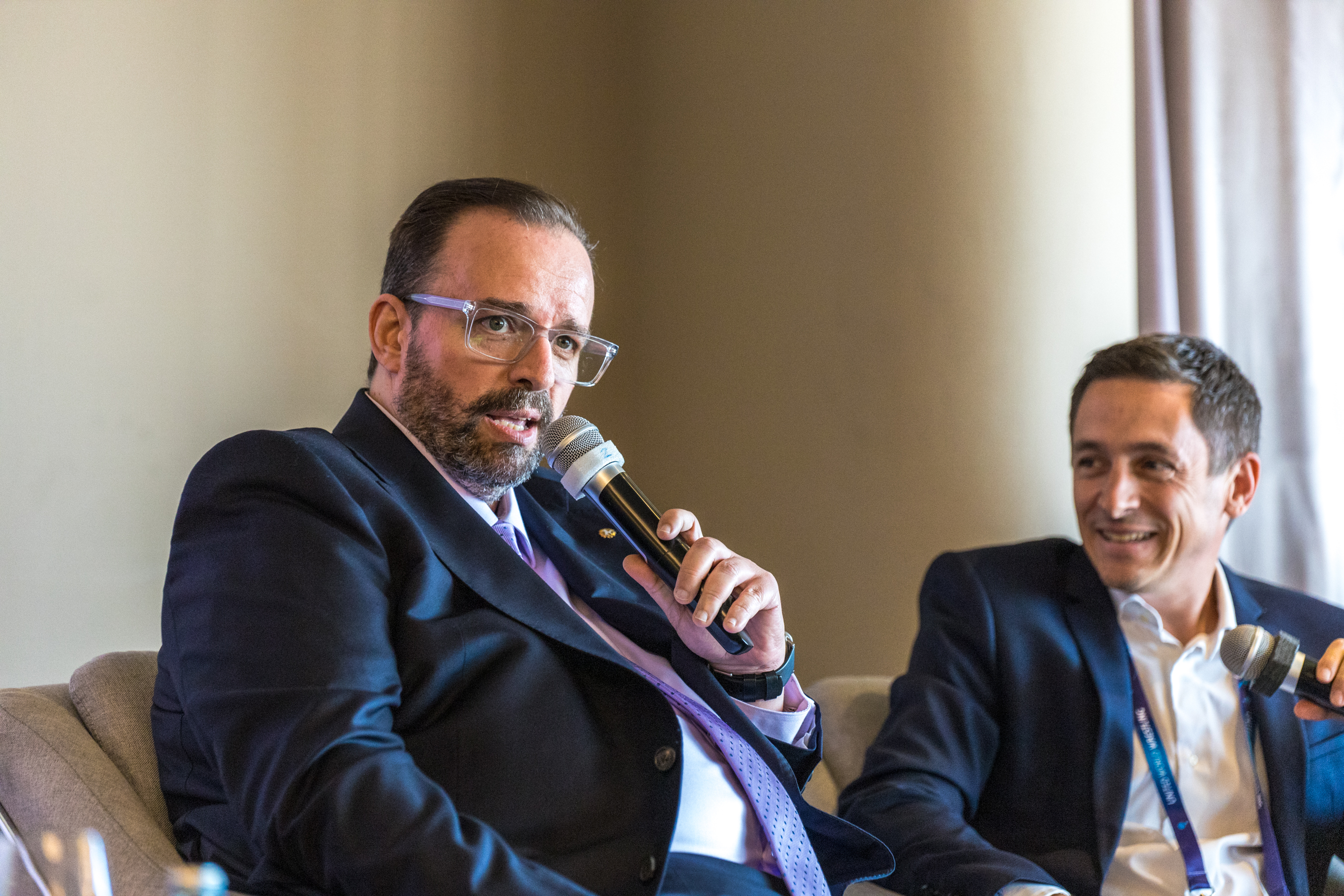 UWW Beach Wrestling Committee President Pedro SILVA.
UWW Beach Wrestling Committee President Pedro SILVA.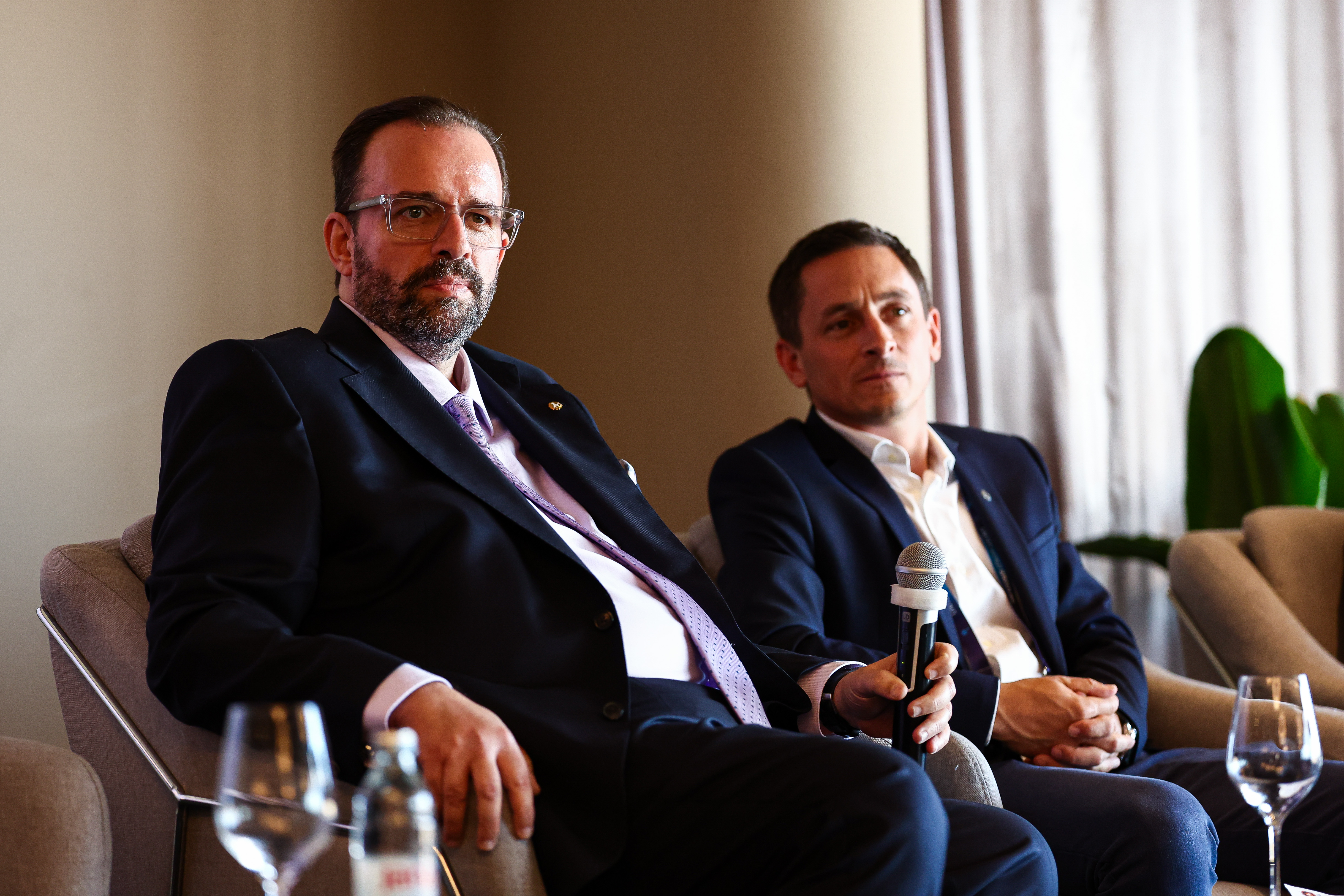 Pedro SILVA, left, and UWW Sports Director Jean-Daniel REY. (Photo: United World Wrestling / Jake Kirkman)
Pedro SILVA, left, and UWW Sports Director Jean-Daniel REY. (Photo: United World Wrestling / Jake Kirkman)
Share your thoughts.
Comments